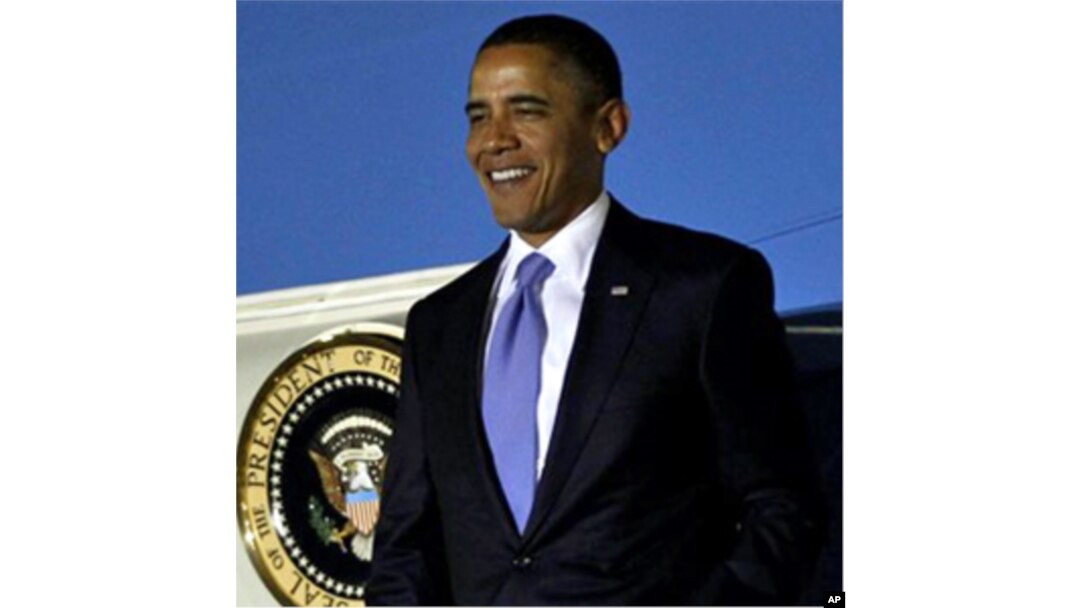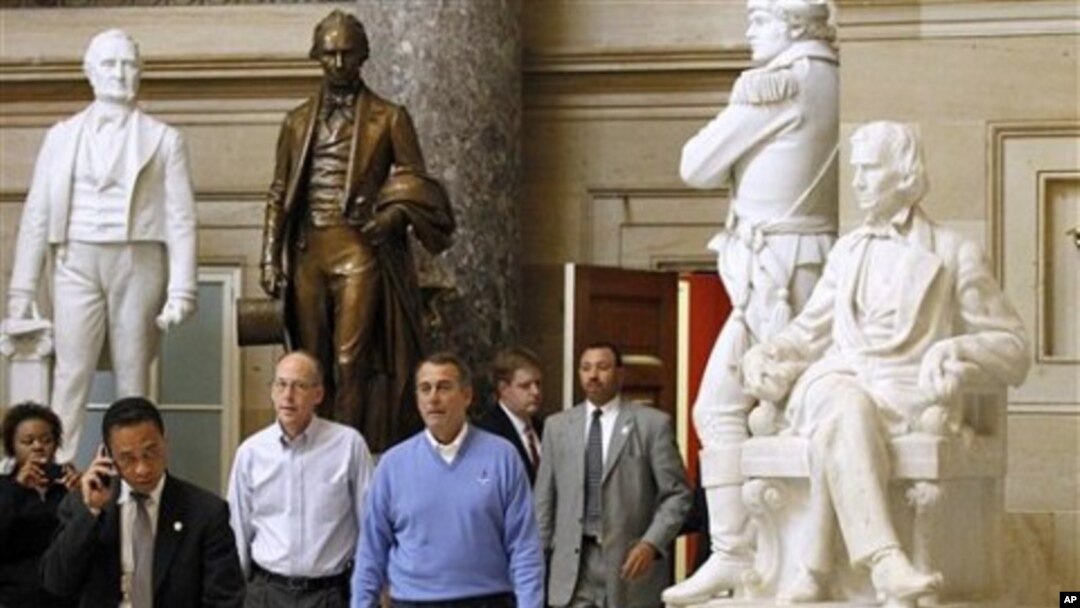President Barack Obama faces an altered U.S. political landscape in the aftermath of this month's midterm elections. Come January, Republicans will take control of the House of Representatives and they will hold six additional seats in the Senate.
The Republicans, who are eagerly preparing for their majority in the House, are vowing to push a congressional agenda focused on cutting taxes and government spending.
Hiring freeze
Republican House leader John Boehner is expected to become the next Speaker of the House. He spoke to reporters on Wednesday.
"We say that there ought to be a freeze on the hiring of new federal employees and, frankly, we ought to freeze the pay," he said.
Parties got the message

President Barack Obama arrives to attend the G-20 Summit in Seoul, South Korea, Wednesday, Nov. 10, 2010.
Before he left last week on a 10-day trip to Asia, President Obama said the message he got from the election results was that voters want the White House and Congress to focus on the economy and jobs after the new Congress is seated in January.
"The American people don't want us just standing still and they don't want us engaged in gridlock," said Mr. Obama. "They want us to do the people's business."
Republicans have a different read on what the election results mean. With significant gains in the House and the Senate, Republican congressional leaders say voters are demanding action on the priorities they set during the campaign, particularly the push to reduce the size of government.
"So the voters didn't suddenly fall in love with Republicans. We know that," said Senate Republican leader, Mitch McConnell of Kentucky. "They fell out of love with Democrats. And while they may have voted to send more Republicans to Washington, they are sending them here with clear marching orders."
Senate Minority Leader Mitch McConnell talks with reporters on Capitol Hill in Washington (File Photo)
Voters' mood swing
Voters rewarded Republicans this year, just as they did Democrats in the 2006 and 2008 elections. The recent public mood swings suggest a very fickle electorate, says Michelle Bernard of the Independent Women's Forum.
"Both Republicans and Democrats have to work together. They have to be able to show that over the next two years they are actually going to do something that is going to cut the deficit and is going to add to private sector job growth," said bernard. "And if they don't, this electorate has demonstrated that they will kick them out in two years as well."
But it is unclear to what extent either major political party is willing to compromise. Most analysts say Republicans will try to assert themselves early in the new Congress, focusing on issues like cutting government spending and repealing the president's health care law, which passed Congress with only Democratic support.
Confrontation in Congress
Political analyst Morton Kondracke says a renewed congressional battle over the health care reform law could spark a broader confrontation between President Obama and Republican leaders that could lead to a government shutdown.
"If they just don't appropriate that money, this inhibits the ability of the administration to follow through on health care reform and could be the makings, if there is a big defunding effort underway, could be the makings of a government shutdown," said Kondracke.
President Obama faces a political landscape somewhat similar to the one that confronted Bill Clinton following the 1994 midterm elections, when Republicans took control of the House and Senate.
Mr. Clinton confronted Republicans on some issues but found areas of compromise on others, a strategy that helped him win reelection in 1996.
Some Democrats are looking for a repeat of that strategy, including former Texas Representative Martin Frost.
"The question is whether the president is going to be Jimmy Carter or Bill Clinton? And I think this issue is open. I think that Democratic leaders have got to realize that the public didn't like what they were selling, and that Democratic leaders and the president have to make a sincere effort at bipartisanship because the public doesn't want gridlock," said frost. "The public wants some action on the economy."
The president and congressional Republicans will also be looking ahead to the next presidential election in 2012, when Mr. Obama presumably will seek reelection.
Political environment changes
Although some analysts see the recent Democratic midterm losses as a danger sign for the president, polling expert Frank Newport says the political environment two years from now could be completely different.
"Certainly for Bill Clinton, who looked to be in a very bad position in 1994, his party had lost over 50 [House] seats, lost control of Congress, and yet he came back in 1996 and won reelection handily, all by way of saying that two years is an eternity in politics," said Newport. "So what happens now probably doesn't give us much clue at all as to what is going to be happening in the 2012 presidential election."
Like Democrat Bill Clinton, former Republican President Ronald Reagan won reelection in 1984 after his party endured significant losses in the congressional midterm elections of 1982.


